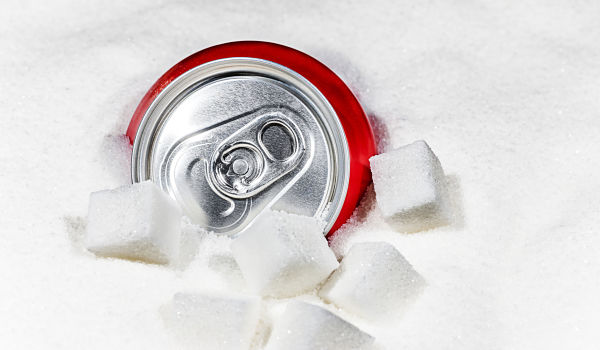Greens leader Dr Richard Di Natale is calling for a 20 per cent ‘sugar tax’ on sweetened drinks in a bid to tackle Australia’s obesity crisis, but industry groups have warned small businesses will be among the ones hardest hit from the excise.
The Greens have proposed a flat 20 per cent tax to be paid by producers or importers of water-based beverages with more than five grams of sugar per 100ml, based on the product’s retail price. The party claims the tax would raise around $500 million per year.
The proposal follows the announcement by the UK Government in March that it would introduce a soft drinks industry levy to be paid by producers and importers of soft drinks that contain added sugar from April 2018.
In the UK, the levy will be charged on drinks according to their total sugar content, with a main rate charge for drink above 5 grams of sugar per 100 millilitres and a higher rate for drinks with more than 8 grams of sugar per 100 millilitres. Under the provisions, smaller operators will be exempt from the tax.
AACS: Small businesses biggest losers of sugar tax
The Australasian Association of Convenience Stores (AACS) believes the introduction of a sugar tax would see small businesses “lose out even further to the major supermarket chains” as beverages are an important sales category as well as profit for smaller stores.
“There is no rational basis to believe increasing taxes on certain products will result in improved health outcomes,” AACS CEO, Jeff Rogut, said.
“Tobacco is a prime example. As the government continues to raise excise on legal tobacco, more and more consumers are simply switching to cheaper alternatives and the illegal tobacco market continues to flourish, fuelling alarming health and safety consequences for the broader community,” Mr Rogut said.
“Many market leaders, including beverage producers, are already investing in healthier alternatives. The demand from consumers for healthier products encourages a natural market response, and supporting these endeavours makes much more sense than the uninspired, flawed response of simply raising taxes,” Mr Rogut said.
Mr Rogut pointed to the example of Denmark, where the Danish Government announced the scrapping of the ‘fat tax’ it introduced just 12 months prior and cancelled plans for a sugar tax, following the failure of the policy.
“Applying tax to certain items because those items have an emotional association to obesity in the minds of some groups is not only flawed, it’s short-sighted and lazy. It’s also economically destructive,” Mr Rogut said.
Mr Rogut said that if introducing a tax on soft drinks is to be pursued, logic suggests it would have to encompass all sweetened drinks such as flavoured milk, iced teas, fruit smoothies and otherwise healthy juices.
“The economic ramifications for manufacturers, suppliers and retailers would be immense, yet the potential for such measures to achieve improved health outcomes is unknown,” Mr Rogut said.
Education not excise needed, says Beverages Council boss
Australian Beverages Council CEO, Geoff Parker, said a soft drinks tax would be an ineffective solution to obesity.
“There is no substantial evidence globally that a soft drink tax has a meaningful impact on obesity rates. Research from the McKinsey Global Institute found that a 10 per cent tax on high-sugar products would be one of the least effective measures in combating obesity, ranking 14th of 17 intervention methods, with portion control having the highest estimated impact with the most cost effective measures1,” Mr Parker said.
The soft drink category contributes 1.7 per cent of the daily intake of kilojoules for Australian adults2. In addition, nearly one in two drinks consumed is a non-sugar variety (42 per cent volume share in 2011) compared to 30 per cent in 19973.
“As an industry, we see education, access to information and moderation in consumption are the best methods to combat the issue of obesity. Beverage consumption is a personal choice and soft drink can safely maintain a place within a balanced diet. It is not however, a source for government revenue.”
1. Overcoming obesity: An initial economic analysis – McKinsey Global Institute 2014
2. Quenching Australia’s thirst: A trend analysis of water-based beverage sales from 1997 to 2011, Gina S. LEVY and William S. SHRAPNEL – Nutrition & Dietetics 2014
3. Secondary analysis of non-alcoholic beverage consumption from the Australian National Health Survey, (commissioned by the Australian Beverages Council and undertaken by the CSIRO), 2015
Sign up to C&I’s weekly newsletter here to receive the latest industry news every Thursday. Follow C&I on Facebook, Twitter and Linkedin.

